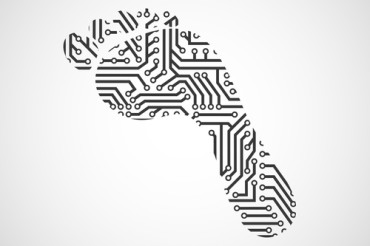
Mobile AI apps give businesses the ability to analyze data, allowing them to provide more engaging and personalized user experiences.
Artificial Intelligence is possibly the most loved and dreaded innovation at the same time. Remember the “Person of Interest” TV series showing the villainous machine called Samaritan? Yes, Hollywood often makes AI look terrible. But when it comes to mobile app development, AI is a revolutionary technology. Specifically, AI apps can prove to be a market differentiator by providing a more engaging and enhanced customer experience.
With the integration of Artificial Intelligence into modern mobile applications, the entire user experience is getting richer. But, AI integration into apps is not a magic wand, and as pointed out in a Reddit conversation, it needs enough research, or you might end up annoying your consumers.
AI app development is in great demand. According to Statista, the AI development market is set to surge up to $126 billion by 2025, with Microsoft, IBM, Google, and Samsung being the top tech giants with the most AI-based patents.
See also: How Artificial Intelligence is Enhancing Mobile App Technology
AI apps are now mainstream
So, if you are looking for AI app development ideas, here are some top examples that can inspire you.
1) Google Socratic: Google Socratic is an AI-based learning platform that helps schools and organizations with an understanding of core concepts. The best thing about the app is that it makes asking questions simple for any user. A student using the Socratic app can picture a math problem or just ask a question via smartphone microphone; the app will resolve it.
Google deploys AI-based algorithms that help students with computations and complex problems through query analysis. When you ask a question, the algorithm analyzes it and offers relevant core concepts.
2) Netflix: Who does not like to binge-watch their favorite shows, but what if your streaming platform can suggest excellent content? This is what Netflix aimed with its content suggestion feature. That is not all; Netflix offers the exact percentage of each content relevant to your profile.
To power this excellent feature, Netflix uses a “similarity map” type architecture. AI algorithms analyze the metadata, tags, and embedding to determine title suggestions.
3) Spotify: Spotify is the most significant music streaming service in the world. The best part about the app is its music suggestions. Like Netflix, Spotify also uses metadata from users, but the difference between both algorithms is data volume.
Spotify sources metadata from blog posts, social media discussions on artists, tracks, and even music-based magazines for the algorithms. Here, what you can learn from Spotify is offering relevant data sources to your AI algorithms for mobile app development because it can help you provide personalized content.
4) Youper: Youper is a mental healthcare app based on AI development. It helps users to deal with a specific set of emotions like depressions, anxiety, and others. Youper is a chatbot app that uses Natural Language programming and AI-based algorithms for a cognitive approach to replicate human to human conversations.
5) Mubert: Mubert is a music streaming platform but with a twist. The app generates music according to a person’s mood or activity; for example, it can help you sleep with snoozing music. It uses a Machine Learning algorithm for generative music streams that do not repeat or stop- like an infinite live soundtrack. The app uses a layering technique at the core to offer continuous music streaming.
6) Wysa: Wysa is a virtual mental coach that uses cognitive empathetic listening and therapeutic techniques. It helps users with practices like meditation and conversational AI to handle a variety of emotional issues. The AI-based app has 100 million interactions of the algorithm with humans to develop a database of patterns. The algorithms use these human behavioral patterns with feedback from psychiatrists and experts to render guidance for users.
7) Aqcuiso: If you are a marketer, Aqcuiso is the best option for scaling your business. It is a PPC automation platform built on Artificial Intelligence. The platform is more than just an app; it is a suite of tools, and services that help with workflow automation, campaign cloning, omnichannel reporting, social advertising, API integration for third-party software, and even automation of display campaigns.
The platform uses Acquisto Turing, a Machine Learning technology that employs more than 30 intelligent algorithms. The ML technology enables marketers to automate bids and manage advertisement budgets.
8) Magisto: Magisto is a video editing app that offers AI-based features. The app conducts a visual and audio analysis of your videos by AI-based algorithms to create shareable stories. The visual analysis includes camera motion, face recognition, video stabilization, and object detection.
Simultaneously, the audio analysis consists of speech detection, audio classifications, and musical analytics. Magisto offers desktop and mobile apps for video editing enhanced through AI algorithms that use metadata.
9) Cortana: If you are using Windows 10, Cortana is a common thing for you, as it is fused with your usual search option in the system. Cortana is an AI-based virtual assistant developed by Microsoft. Its capabilities are not limited to just Windows desktops, especially after Microsoft in 2019 added conversational AI capabilities to Cortana for mobile usage.
10) Cleo: Cleo is a financial assistant app that helps you manage your expenditures and savings. At its core, it employs AI app development technology for automated financial management. All you need is to download the app on your smartphone, link the bank account, and it will automatically start tracking your economic activities.
Next, the app’s conversational AI interacts with you over the app’s interface or even Facebook messenger for financial suggestions and additional assistance. Cleo ensures the security of the user’s financial information through bank-level encryptions.
Conclusion
Artificial Intelligence has been the innovation that enables businesses to provide personalized user experience over apps and software. An AI-powered app’s capability to analyze different data patterns and render effective solutions for users makes it more attractive for any firm.
These data patterns can be anything from buying behavior to credit scores and even user preferences. With modern smartphones getting more powerful than ever, mobile app development based on AI technology is gaining momentum. You can be a part of this innovative drive towards the future with a strong problem-solving idea at its core.






























